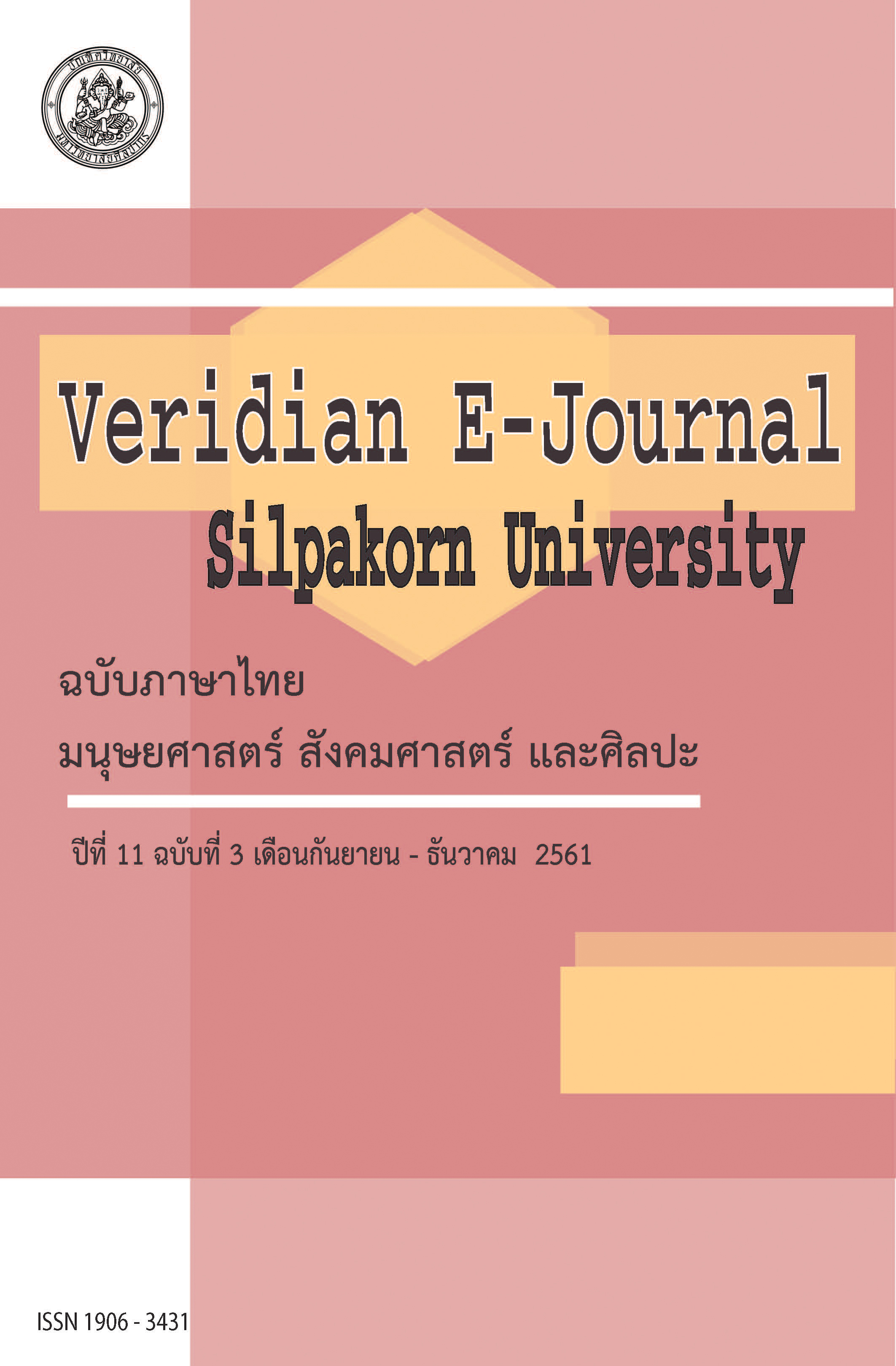การพัฒนาหลักสูตรรายวิชาจริยธรรมและทักษะชีวิต (The Development Of Ethic And Life Skills Curriculum For Under Graduate Students In The Faculty Of Education)
Main Article Content
Abstract
การวิจัยนี้มีวัตถุประสงค์เพื่อ (1) ศึกษาข้อมูลพื้นฐานในการพัฒนาหลักสูตรรายวิชาจริยธรรมและทักษะชีวิตสำหรับนักศึกษาปริญญาตรี คณะศึกษาศาสตร์ (2) พัฒนาและหาประสิทธิภาพของหลักสูตรรายวิชาจริยธรรมและทักษะชีวิตที่พัฒนาขึ้น (3) ทดลองใช้หลักสูตรรายวิชาจริยธรรมและทักษะชีวิต และเปรียบเทียบผลสัมฤทธิ์ทางการเรียนชองนักเรียนก่อนและหลังการใช้หลักสูตร (4) ประเมินผลการใช้หลักสูตรรายวิชาจริยธรรมและทักษะชีวิตด้านความรู้ ด้านพฤติกรรมเกี่ยวกับคุณธรรม จริยธรรมและทักษะชีวิต และประเมินความคิดเห็นของนักศึกษาที่มีต่อหลักสูตรรายวิชาจริยธรรมและทักษะชีวิต เป็นการวิจัยและพัฒนาสี่ขั้นตอนล้อไปกับวัตถุประสงค์ของการวิจัย แบบการวิจัยเป็นแบบกลุ่มเดียวสอบก่อนและหลัง (one group pretest-posttest design) กลุ่มตัวอย่างเป็นนักศึกษาคณะศึกษาศาสตร์ มหาวิทยาลัยกรุงเทพธนบุรี ภาคเรียนที่ 1 ปีการศึกษา 2558 ได้มาด้วยการเลือกแบบเจาะจง (purposive sampling) เครื่องมือที่ใช้ในการวิจัยได้แก่ (1) แบบสอบถามความต้องการของนักศึกษาและอาจารย์เกี่ยวกับการพัฒนาหลักสูตร (2) แบบทดสอบวัดผลสัมฤทธิ์ทางการเรียน (3) แบบประเมินพฤติกรรมทางจริยธรรมของนักศึกษา (4) แบบประเมินทักษะชีวิต และ (5) แบบประเมินความคิดเห็นของนักศึกษาวิเคราะห์ข้อมูลด้วยค่าเฉลี่ย () ค่าส่วนเบี่ยงเบนมาตรฐาน (S.D.) ค่า (t-test) และการวิเคราะห์เนื้อหา (content analysis)
ผลการวิจัยพบว่า (1) นักศึกษาและอาจารย์ต้องการให้มีการพัฒนาหลักสูตรรายวิชาจริยธรรมและทักษะชีวิต (2) หลักสูตรจริยธรรมและทักษะชีวิตที่พัฒนาขึ้น ประกอบด้วย วัตถุประสงค์ เนื้อหาวิชา กิจกรรมการเรียนการสอน สื่อการเรียนการสอน การวัดและการประเมินผล และรายชื่อหนังสืออ่านประกอบ (3) ผลสัมฤทธิ์ทางการเรียนของนักศึกษาหลังการใช้หลักสูตรสูงกว่าก่อนการใช้หลักสูตร (4) พฤติกรรมทางจริยธรรมของนักศึกษาหลังการทดลองใช้หลักสูตรมีการปฏิบัติอยู่ในระดับสูงกว่าก่อนการทดลอง และความคิดเห็นของนักศึกษาที่มีต่อหลักสูตรจริยธรรมและทักษะชีวิตในภาพรวมอยู่ในระดับเห็นว่ามีความเหมาะสมมาก
The purposes of this research were to (1) study the foundations of curriculum development on ethic and life skills, (2) develop ethic and life skills curriculum and testing curriculum efficiency, (3) implement of ethic and life skills curriculum, and (4) evaluate student opinion toward Ethic and Life Skills Curriculum.
The study was the one group, pretest-posttest design. The sample comprised 41 undergraduate students in academic year 2015 of the Faculty of Education of Bangkok Thonburi University drawn by purposive sampling.
The research instruments were: (1) a set of needs assessment questionnaire on ethic and life skills for the instructors and undergraduate students, (2) an achievement test on ethic behavior and life skills, (3) student evaluation form on ethic and life skills, (4) a student opinion on ethic and life skills curriculum. Data were analyzed by mean (), standard deviation (S.D.), t-test dependent, and content analysis.
The research finding were as follows: (1) the instructors and undergraduate students needed to develop ethic and life skill curriculum, (2) the developed ethic and life skills curriculum composed of objectives, subject matters, instructional activities, medias, and instructional evaluation,(3) student learning achievement after curriculum implementation was higher (= 44.10, S.D.= 6.76) than before (
= 27.63,S.D.= 2.77), (4) student ethic behavior after curriculum implementation was higher(= 4.06, S.D.= 0.53) than before (= 3.64, S.D.= 0.44),(5) student life skills after curriculum implementation was higher (
= 3.98, S.D.= 0.67) than before (
= 3.56, S.D.= 0.48) (
= 44.10, S.D.= 6.76), and (6) students opinions on ethic and life skills curriculum totally was higher suitable (
= 2.73,S.D.= 0.45) where each component (subject matters, instructional activities, medias, and instructional evaluation) was a high suitable as well.
